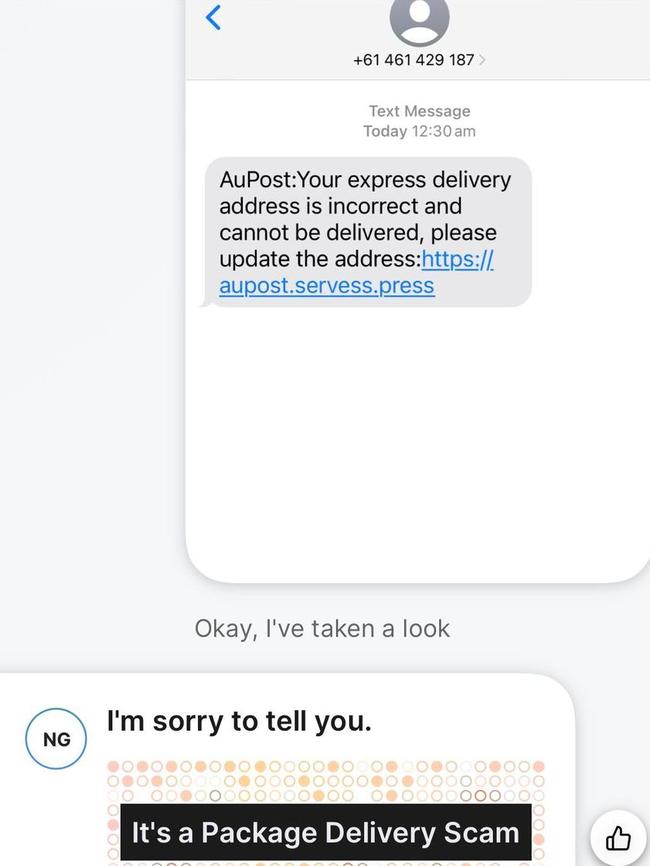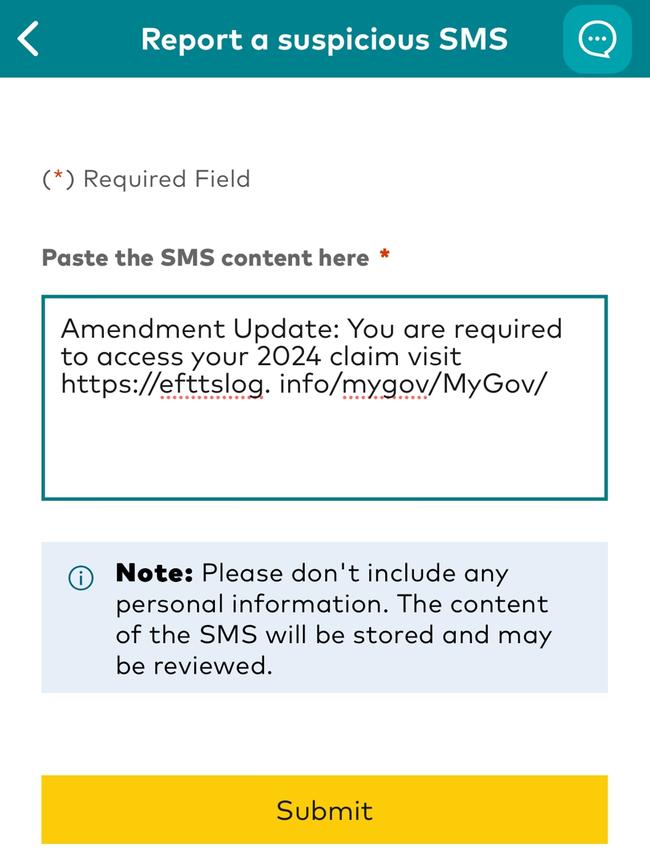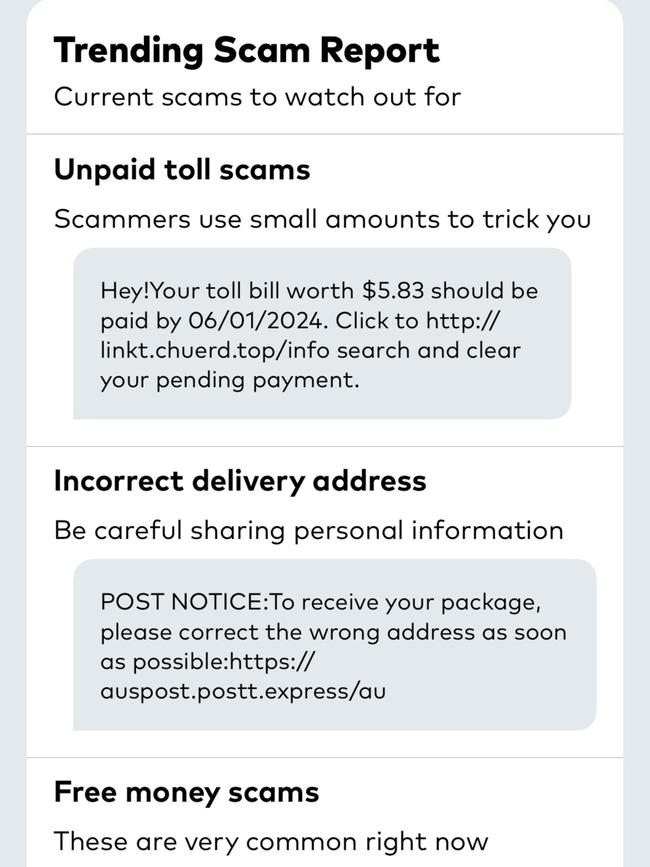Explosion of scams forces big companies to crowdsource
Companies rely so much on customers to report scam texts and messages that they’re now developing apps, platforms and new features dedicated to self-reporting.

The global scamming industry has grown so large that companies have begun to crowdsource new intelligence from their own customers.
Some companies are spending huge sums to develop platforms, mobile apps and extend partnerships to receive scam information directly from consumers, a process which allows internal security teams to ultimately be across more scams. It arrives as Australians lost $3.1bn to scammers in 2022, according to the competition regulator.
While most Australians can determine whether a text or email with a dodgy link is a scam, many struggle to know when they are a victim of a social engineering scam – a slow burn approach which involves talking to a victim over a period of time and tricking them into revealing sensitive information. That’s according to Dean Williams, Senior Systems Engineer for Norton.
Norton had this week launched an app called Norton Genie, an AI-powered product which can provide an instant assessment of text messages and emails, arriving at a decision based off of training of over 500 million data points.

The tool was given an early, non-publicised launch late last year, a “strategic move” which allowed Norton to fine tune its responses and absorb some early intel on the most recent scams.
“We basically put it out there to the public for early adopters, and that’s strategic because being a tool that’s powered by AI, you need to get it off the ground and learn,” Mr Williams said. “With crowdsourcing, the endgame for that is to build a very accurate, continuously evolving tool.”
Genie does a little more than provide a yes or no response, attempting to explain how it arrived at that decision.
The product’s launch arrives as AI is increasingly being used by cyber criminals to help fine tune social engineering scams and in some cases simply correct grammar to make messages to victims appear more natural and believable.
The Australian revealed last year that within months of ChatGPTs launch, cyber criminals were already leveraging the chatbot to help with scams, skirting around initial safety measures by not asking the chatbot to directly provide a scam but what a scam might look like.
Across scams more broadly, Norton had noticed a 75 per cent shift toward social engineering, which included victims receiving messages from scammers asking for help, often pretending to be a relative, friend or immediate family member, Mr Williams said.

Text scams were particularly concerning as the take-up of security and malware protection on smartphones still lagged behind computers, Mr Williams said. “If you think about mobile devices, they are now our main on-ramp to the internet, and the flux of scams that we get through social media and text messages in some ways outweigh what we get through traditional email.”
Optus is treading down a similar path with the launch of ScamWise in the Optus app. It’s the latest in a series of efforts to prevent scammers, which the telco said had prevented 380 million scam calls and 130 million SMS scam messages since December 2020.
While attempts to block calls and texts altogether were made, “cunning” scammers were still able to get through.
The company had to resort to restricting the use of links on communications regarding its national network outage last year, and quick moving hackers set up malicious links in days under the premise of compensation claims.


Matt Williams, Optus’s managing director of customer solutions, said the telco had witnessed scammers shift to mobile-centred ploys, targeting devices and personal communication channels. The telco’s security teams would analyse submissions through the new ScamWise feature and block associated numbers and messages if determined to be a scam, he said.
“Whilst we are working hard to stop scams, these criminals are cunning and sometimes scam messages do get through,” he said. “It’s important that we continue to work with our customers, the banks and the Australian Financial Crimes Exchange to try and get one step ahead of the fraudsters.”
More Coverage
Originally published as Explosion of scams forces big companies to crowdsource





